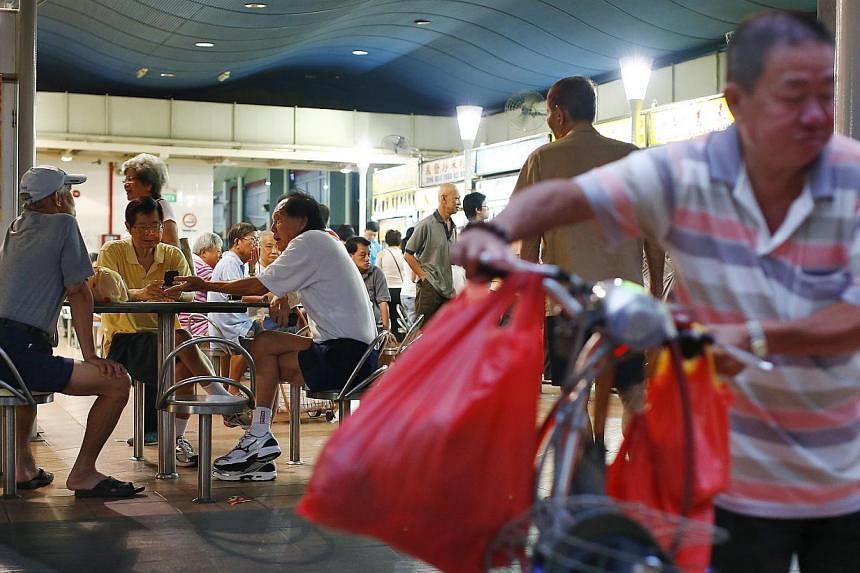The World Bank Report of 1994, titled Averting The Old Age Crisis, introduced the concept of three fundamental pillars of an old-age income security system.
The first is a basic tax-financed, means-tested or flat pension provided by the state to reduce old-age poverty; the second is a fully funded, forced-savings pillar that provides benefits to those who contribute; and a third pillar consists of voluntary occupational or personal savings plans to provide additional protection for people who want more income and security in their old age.
Prime Minister Lee Hsien Loong's announcement of a Silver Support scheme in his National Day Rally speech is a step towards the introduction of a basic, first pillar to complement Singapore's well-established "second pillar" system of the Central Provident Fund (CPF).
While further details of the scheme would be provided in the Budget speech next February, PM Lee did indicate that this scheme would pay an amount yearly to eligible low-income elderly Singaporeans aged from 65 years to help them with their living expenses.
Several participants at the Institute of Policy Studies' Forum on CPF and Retirement Adequacy, held on July 22, raised the issue of specific groups that were not well-served by the CPF system. These were groups with limited, irregular or no income during their lifetimes, in particular non-working women and the disabled.
Hong Kong's Old-Age Living Allowance (OALA, or colloquially "fruit money") was brought up as an example of what could help such groups. This scheme pays a monthly payment of HK$2,285 (about S$367 at today's exchange rates) to elderly Hong Kong residents aged 65 years and older who are in need of financial support. Income and asset tests limit OALA payouts to those households with income less than half the current median household income in Hong Kong.
The National Survey of Senior Citizens 2011 showed that 40 per cent of Singaporean residents aged 65 to 74 had monthly income of less than $1,000, derived mainly from transfers from children and their own personal savings (outside of the CPF).
This is significantly less than the $2,000 post-retirement monthly income that the majority of the audience at Sunday's National Day Rally believed would be required by the hypothetical Mr and Mrs Tan in the PM's financial planning case study in his speech.
It's also lower than the $1,601 average monthly expenditure of households where the main income earner was above 65 years in the Household Expenditure Survey 2007/08.
The Silver Support scheme can, thus, play a role in bridging the gap between income and expenditure for the over-65s.
The scheme should also be well within the country's fiscal means. As an illustration only, if the Silver Support scheme payout was $4,800 a year to each eligible senior, the total cost of such a scheme to an eligible cohort of 162,000 (40 per cent of Singaporean residents aged 65 and above last year) would amount to $778 million annually.
While this number could rise substantially in the future as the population ages, even a quadrupling would still put the cost of providing for the Silver Support scheme at less than half of the cost of this year's Pioneer Generation Package.
Great care should be taken in establishing the appropriate level for the Silver Support payout so as not to increase moral hazard or dissuade family members from assisting in the financial support of their elderly parents.
But the sheer fact that the Government is embarking on this Silver Support plan - which forms the "first pillar" in old-age income support - represents a most welcome strengthening of the country's social safety net.
Mr Christopher Gee is a research fellow and Dr Yap Mui Teng is a senior research fellow at the Institute of Policy Studies, National University of Singapore. Their research focuses on issues related to demography and the family.
Related Links:

